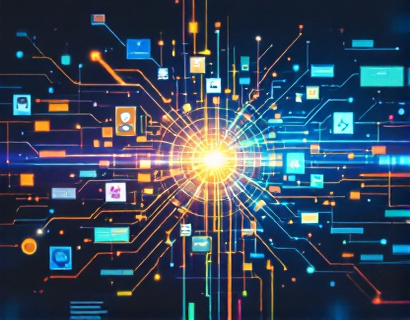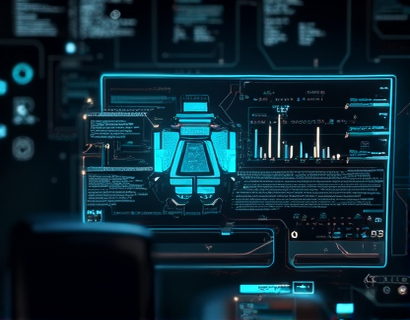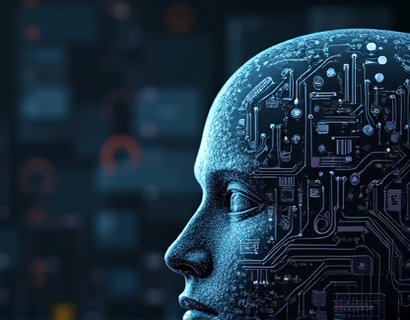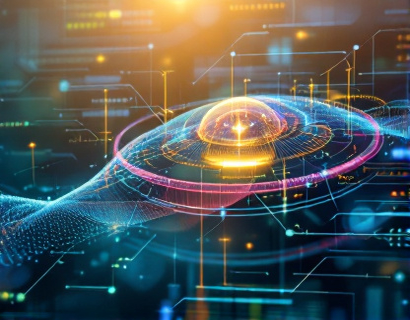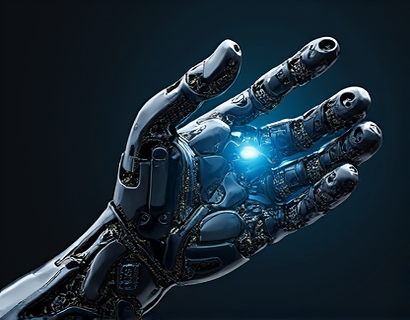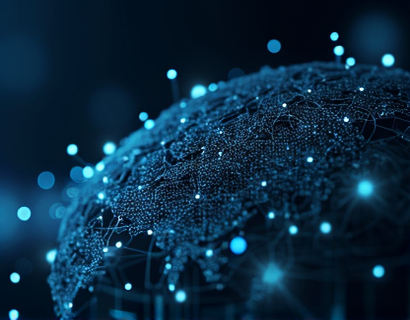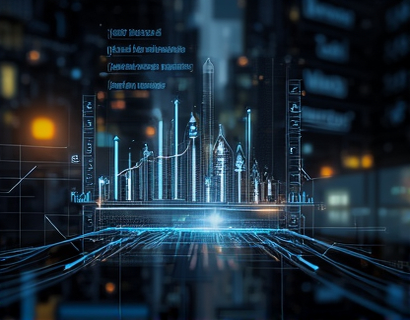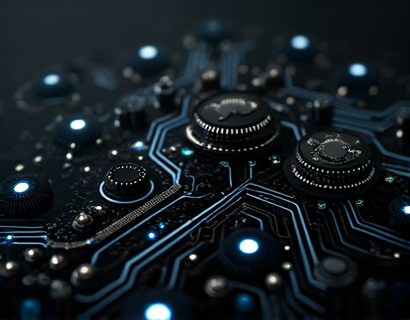Decentralized Productivity: Maximizing Efficiency with AI and Crypto Integration
The integration of artificial intelligence (AI) and cryptocurrency technologies is revolutionizing the way we approach productivity in the digital realm. This shift towards decentralized productivity not only enhances efficiency but also simplifies complex digital tasks, offering a more streamlined and secure experience for users. As we delve into this topic, it's essential to understand the foundational concepts of decentralization, AI, and crypto, and how they synergistically contribute to a more efficient digital ecosystem.
Understanding Decentralization
Decentralization refers to the distribution of functions, processes, or activities away from a central authority. In the context of digital productivity, decentralization means moving away from centralized platforms and services to a network-based approach where data and tasks are managed collectively by a community. This shift reduces reliance on single points of failure, enhances security, and promotes transparency. Decentralized platforms leverage blockchain technology, a distributed ledger that ensures data integrity and immutability, making it an ideal foundation for decentralized productivity tools.
AI in Decentralized Productivity
Artificial intelligence plays a pivotal role in enhancing the capabilities of decentralized systems. AI algorithms can process vast amounts of data, identify patterns, and make predictions, all of which are crucial for optimizing productivity. In a decentralized environment, AI can facilitate automated task management, intelligent routing of tasks, and predictive analytics to anticipate user needs. For instance, AI-driven bots can manage and coordinate tasks across a decentralized network, ensuring that resources are utilized efficiently and effectively.
Cryptocurrency and Decentralized Economics
Cryptocurrency is the digital or virtual currency that uses cryptography for security and operates on a decentralized network, typically a blockchain. In the realm of decentralized productivity, cryptocurrency serves multiple purposes. It acts as a medium of exchange for transactions within the network, incentivizing participation and rewarding contributors. Smart contracts, self-executing contracts with the terms directly written into code, can automate payments and ensure that tasks are completed as agreed upon, reducing the need for intermediaries and lowering transaction costs.
Enhanced Security and Privacy
One of the most significant advantages of integrating AI and cryptocurrency into decentralized productivity systems is the enhanced security and privacy they offer. Blockchain's inherent security features, such as cryptographic hashing and consensus mechanisms, protect data from tampering and unauthorized access. AI can further bolster security by detecting and mitigating potential threats in real-time. Privacy is also a key concern, and decentralized systems, combined with zero-knowledge proofs and other privacy-preserving technologies, ensure that user data remains confidential while still being usable for productive purposes.
Improved Collaboration and Task Management
Decentralized productivity platforms enable seamless collaboration among users without the need for centralized control. AI can facilitate this by providing intelligent tools for task assignment, progress tracking, and communication. For example, AI-powered chatbots can assist in coordinating team efforts, suggesting optimal workflows, and providing real-time updates. This not only streamlines collaboration but also ensures that all participants are aligned and working towards common goals.
Automation and Efficiency Gains
Automation is a cornerstone of decentralized productivity, and AI is the driving force behind it. By automating repetitive and time-consuming tasks, AI allows users to focus on higher-value activities. Smart contracts can automate workflows, ensuring that tasks are executed precisely as per the agreed parameters. AI can also optimize resource allocation, balancing workloads and minimizing idle time. This level of automation leads to significant efficiency gains, reducing the time and effort required to complete tasks.
Scalability and Flexibility
Decentralized systems are inherently scalable and flexible, thanks to their distributed nature. As the network grows, the system can handle increased load without a drop in performance. AI enhances this scalability by dynamically adjusting to changing demands and optimizing resource usage. This flexibility is particularly beneficial for businesses and individuals who need to adapt quickly to market changes or expand their operations. The ability to scale seamlessly ensures that productivity tools remain effective and reliable, regardless of the size or complexity of the project.
Incentivization and Community Engagement
Cryptocurrency incentivizes participation and engagement within decentralized productivity networks. By rewarding users with tokens for contributing resources, completing tasks, or providing valuable insights, these systems foster a community-driven approach to productivity. AI can analyze user behavior and preferences to tailor incentives, ensuring that the most valuable contributions are recognized and rewarded. This not only motivates users but also creates a more engaged and active community, which is essential for the success of decentralized platforms.
Case Studies and Real-World Applications
Several projects and platforms are already leveraging the combination of AI and cryptocurrency to enhance productivity. For instance, certain decentralized task management platforms use AI to optimize task assignment based on user skills and availability, while others employ blockchain to ensure transparent and secure payment processes. These applications demonstrate the practical benefits of integrating AI and crypto into productivity tools, showcasing how they can transform traditional workflows into more efficient and secure processes.
Challenges and Considerations
While the potential of decentralized productivity powered by AI and cryptocurrency is vast, there are challenges that need to be addressed. Technical complexity remains a barrier for some users, and education is crucial to widespread adoption. Scalability issues, though less common with mature blockchain networks, still need to be managed to ensure smooth operations. Additionally, regulatory frameworks are evolving, and compliance is essential to operate within legal boundaries. Despite these challenges, the benefits of decentralized productivity continue to drive innovation and adoption.
Future Outlook
The future of decentralized productivity is promising, with ongoing advancements in AI and blockchain technology poised to further enhance efficiency and user experience. As more developers and businesses recognize the potential of this integration, we can expect to see more sophisticated and user-friendly tools emerge. The convergence of AI, cryptocurrency, and decentralization will continue to reshape the digital landscape, offering new opportunities for individuals and organizations to collaborate and achieve their goals more effectively.
In conclusion, the integration of AI and cryptocurrency into decentralized productivity systems represents a significant leap forward in digital efficiency. By leveraging the strengths of each technology, we can create a more secure, transparent, and efficient environment for managing and completing tasks. As this field continues to evolve, the potential for innovation and improvement is immense, paving the way for a more decentralized and empowered digital future.






